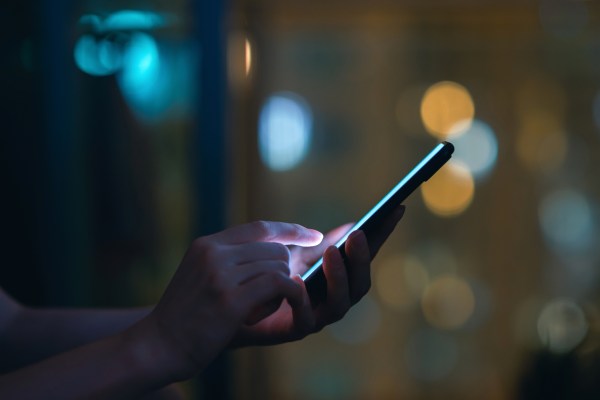
A federal antitrust lawsuit over a long-closed alternative app store called Cydia was given a green light to continue after the initial complaint was dismissed. The Cydia app store, which once featured apps and other tweaks that weren’t allowed by Apple’s official App Store policy, is suing Apple for illegal monopoly on the distribution of iOS apps. This is the monopoly that contributed to the end of Cydia’s business. ..
Plaintiff Saurik ITLLC, the maker of rival app stores, originally filed a legal objection in 2020, but Judge Yvonne Gonzalez Rogers of the U.S. District Court (the same trial that issued the recently appealing Apple-Epic decision). The official) accepted Apple’s motion to dismiss. The first complaint because the claim is outside the scope of the Restriction Act. However, the judge allowed Cydia to correct the complaint filed in January 2022.
The new complaint is ongoing as Judge Gonzales Rogers dismissed Apple’s motion to dismiss. Apple again claimed that Cydia’s allegations were outside the four-year period permitted by federal antitrust law, Reuters reported.
Cydia’s fixed complaint states that a design change recently implemented by Apple has prevented iOS app distributors from offering apps that can be used on iOS devices. The complaint states that these changes were rolled out between 2018 and 2021, which raises legal objections during the permitted time frame for antitrust discussions.
More specifically, complaints include run-time code change prevention, pointer authentication, physical map code signing, memory tagging extensions, and others designed to prevent Cydia and other alternative app stores from offering functional apps. It cites the technical limitations of 2018 and 2019, such as the control mechanism of. It also mentions Apple’s contractual restrictions that prevent developers from using alternative payment mechanisms. It also points out that many of Apple’s restrictions are affecting other app stores as well, such as the new AltStore.
“…[the] Plaintiffs plausibly claim that Apple was involved in a change in technical updates that occurred within four years prior to the proceedings, “Gonzales Rogers wrote in a new proceeding. “Therefore, as long as plaintiffs’ claims rely on Apple’s technical updates to prevent Cydia from fully functioning, those claims are timely,” the decision read.
Cydia aims to ultimately regain damages and injunctive relief and wants to move towards a jury trial. Apple has been given 21 days to respond to the corrected complaint.
While Apple continues to fight iOS developers in other ways, including the ongoing Epic appeal, the Cydia proceedings focus on whether a third-party app store exists and has the legal right to do business. It is especially interesting because it guesses. Cydia points out a decision by the US Copyright Office that declared iPhone jailbreak legal in 2010, claiming they do. Apple has lost a lawsuit that makes jailbreak illegal, and instead has moved to make jailbreak impossible by both technical and contractual means. Insist.
This is a creative tactic to refer to the jailbreak decision, allowing Cydia to point out any other kind of change Apple has made in the years following that ruling. For example, this complaint contrasts how Apple worked against rival app stores and cloud gaming services such as AltStore and Cydia, but like the distribution of WeChat and its “mini-programs”, it’s specific. Allowed the app to distribute the app. Undoubtedly, these are all very different types of experiences, but there are cases where Apple makes choices designed to limit certain rivals and not other rivals.
The complaints themselves can be read a bit like a bag of antitrust concerns, but some of them have nothing to do with Cydia’s operating rights. At one point, Cydia is complaining about an Apple developer fee of $ 99 a year. The other is claiming the Spotify page, so you’ll be wondering who is paying Cydia’s statutory costs.
Still, given Cydia’s major role in iOS innovation over the years, it’s interesting to see Cydia take part in the battle.
As many years of iPhone jailbreakers recall, Cydia was once a popular and big market full of apps and tweaks that overturned Apple’s official rules. To use Cydia, consumers must first jailbreak their iPhone to circumvent Apple’s security protection. This is a process where the Jailbreak team must constantly look for new ways to unlock consumer devices and allow sideloading of apps.
At some point in 2013, Cydia was used by about 23 million users. according to To the numbers from its creator, Jay Freeman.
Jailbreaks could have been associated with providing users with a way to download pirated apps, but Cydia also contributed to the development of iOS itself.
In fact, dozens to dozens of iOS features seem to have been inspired by the tweaks sold by Cydia.
For example, long before users customized their iPhones with widgets and custom icons, Cydia users downloaded theme managers such as Winterboard to overhaul the look and feel of iOS with custom themes. rice field. The popular Cydia tweak SB Settings was the first control center on the iPhone. was Control center. Cydia users will also first have access to custom keyboards, private web browsing, dynamic wallpapers, native QR code scanning, screenshot previews, dark mode, auto-update apps, card-based app switchers, the ability to remove stock apps, and more. I did. , Screen recording tools, and much more.
But given that Gonzales Rogers has already declared in last year’s Epic decision that Apple isn’t a monopoly, Cydia’s ability to actually win the case could be much longer.

Commentaires
Enregistrer un commentaire